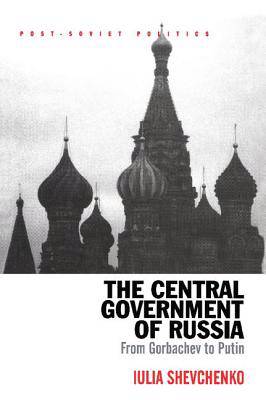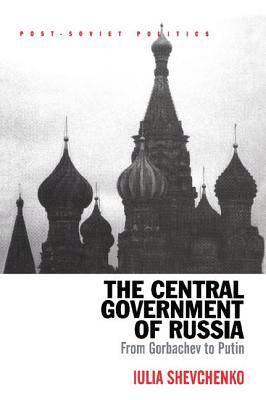
- Afhalen na 1 uur in een winkel met voorraad
- Gratis thuislevering in België vanaf € 30
- Ruim aanbod met 7 miljoen producten
- Afhalen na 1 uur in een winkel met voorraad
- Gratis thuislevering in België vanaf € 30
- Ruim aanbod met 7 miljoen producten
Zoeken
€ 59,45
+ 118 punten
Uitvoering
Omschrijving
Placing the development of the Soviet and Russian central governments in theoretical context, this work breaks new ground in the study of contemporary Russian politics. Iulia Shevchenko's creative treatment of the principal-agent model offers fresh insight into the institutional origins of change in government organization in the communist and post-communist period, from President Gorbachev to President Putin. She demonstrates that government organization varies with the extent to which the principal actors - the president and parliament - are prepared to empower the cabinet to actively develop rather than just implement policy. Delegation of broad decision-making powers, which occurs when the policy environment is highly competitive, is a crucial factor explaining the uneven dynamics of government development during this period. The originality of this work, rich with supporting evidence and empirical data, will ensure that it becomes the standard source for students and scholars concerned with this aspect of post-Soviet politics.
Specificaties
Betrokkenen
- Auteur(s):
- Uitgeverij:
Inhoud
- Aantal bladzijden:
- 212
- Taal:
- Engels
- Reeks:
Eigenschappen
- Productcode (EAN):
- 9781138266506
- Verschijningsdatum:
- 16/05/2017
- Uitvoering:
- Paperback
- Formaat:
- Trade paperback (VS)
- Afmetingen:
- 156 mm x 233 mm
- Gewicht:
- 390 g

Alleen bij Standaard Boekhandel
+ 118 punten op je klantenkaart van Standaard Boekhandel
Beoordelingen
We publiceren alleen reviews die voldoen aan de voorwaarden voor reviews. Bekijk onze voorwaarden voor reviews.











